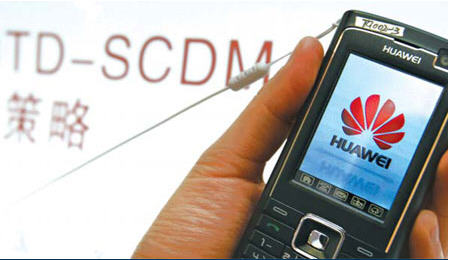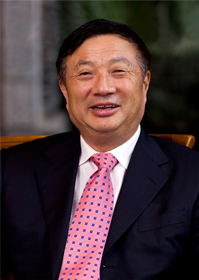Economy
Learning from wolves to fight lions
(Xinhua)
Updated: 2010-09-01 15:17
 |
Large Medium Small |
BEIJING - If business is a jungle where the lion is king, then the wolves are looking to usurp the throne.
At least that's how many Chinese experts see the battle to drive competitive innovation in industry and manufacturing.
While Western executives are learning business acumen from the sixth Century BC Chinese classic, The Art of War by Sun Tzu, Chinese industry leaders are being told to study one of their contemporaries.
 |
|
A sample Huawei phone suppoting China's home-grown 3G mobile standard shown in this file photo. [Photo/CFP] |
The "wolf culture" of privately-owned Chinese telecommunications giant Huawei is a more visceral strategy for survival than Sun Tzu's analytical tract -- it stresses innovation with the message "Get on top and stay there."
 |
|
Ren Zhengfei, Huawei's founder and CEO. [Photo/Huawei.com] |
Ahead of the Pack
In a nation that has been lamenting its lack of innovation, the wolves have been scoring some inspirational successes against the lions recently.
On Thursday, relying on its unique SingleFAN (fiber access network), Huawei was chosen by British Telecom (BT) to provide access products to support its Openreach division in creating a new national fiber network.
In December last year, Tele2 of Sweden and Telenor of Norway picked Huawei to build their shared fourth-generation mobile networks, Long-Term Evolution (LTE), in Sweden ahead of Ericsson and other bidders after the Chinese firm delivered the world's first commercial LTE network in Oslo.
Originally a low-cost manufacturer of products designed by others, Huawei determined to shed its copycat image and move up the value chain when competition at home and abroad intensified in the 1990s.
|
||||
To kindle a spirit of innovation, Huawei encouraged its staff to study wolves.
"When you feel real threat of being eliminated by your rivals, the more thirst you will have for designing innovative products," says Chen Naixing, director of the Research Center for Small and Medium-sized Enterprises (SMEs) at the Chinese Academy of Social Sciences (CASS).
Huawei's corporate values reflected in the "wolf culture" set it apart from other Chinese firms, says Chen.
"Facing a lion, wolves cannot afford to wait in fear. The perseverance and confidence that Huawei promotes aims to free its innovators of fear and enhance their confidence," Chen says.



